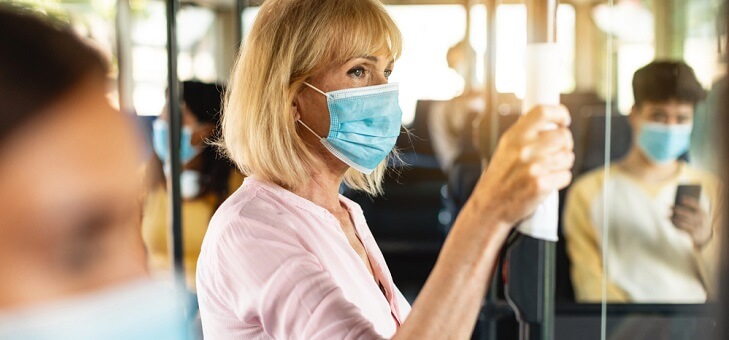Australia has finally reached the ‘magnificent’ milestone of 80 per cent of the population aged 16 and over now fully vaccinated against COVID-19.
The nation hit this important marker on the road out of the pandemic at the weekend, with 80 per cent being the trigger point to move to ‘phase C’ of the federal government’s national plan for opening up borders and the economy.
Phase C means the removal of most restrictions for those who are double vaccinated, and also the ban on international travel.
Prime Minister Scott Morrison announced that we’d met the target on his Facebook page on Saturday, and that it was older Australians who had led the nation in vaccination uptake.
Read: A comprehensive guide to COVID tests for travel
“A huge thank you to everyone,” Mr Morrison says in the pre-recorded video.
“This has been a massive Australian national effort and the work doesn’t stop here. We are on track to have one of the highest vaccination rates in the world.
“As they often do, older Australians have led the way. Ninety-nine per cent of Australians aged over 70 have had a first jab and over 90 per cent have had a second. That’s just extraordinary.”
But vaccine coverage is not spread evenly across the country. The ACT (94.8 per cent fully vaccinated), New South Wales (93.9 per cent) and Victoria (84 per cent) are leading the nation in vaccination rates, thanks largely to the virus dominating those states.
The situation isn’t quite as good in states that have experienced fewer COVID cases and restrictions. Queensland is sitting at 79.3 per cent having had a single vaccine dose, with only 66.9 per cent having received two jabs.
Read: How to talk to someone who doesn’t want a COVID vaccine
The state doesn’t plan to open up to the rest of Australia until 70 per cent of its population has been double dosed (for arrivals by air) and 80 per cent for travel into the state by road.
“The key issue here is if Queenslanders want us to open up quicker both domestically and internationally, it’s in their hands,” Queensland health minister Yvette D’Arth said in a press conference.
“Go out and get vaccinated now and we can open up sooner.”
In Western Australia, Premier Mark McGowan recently announced that state borders would remain closed through the Christmas period, until 90 per cent of the WA community were double vaccinated.
The decision to remain closed until such a high vaccine threshold is reached has angered business leaders in the state. Flight Centre chief executive Graham Turner told SBS that reaching 90 per cent double dosed might not even be possible.
Read: Experts change advice on flu shots and COVID vaccines
“If you look at Queensland and WA reaching 90 per cent, particularly of over 12s, [it] is not a given,” Mr Turner says.
“There’s a fair reluctance in some areas to be vaccinated … so it may never get … to over 90 per cent.
“We would ask, why is it okay for 80 per cent in New South Wales and Victoria, and Queensland, for that matter? But WA somehow wants 90 per cent? So, let’s see what is the science behind that, there must be some reason why they’re having this very conservative measurement.”
While some states are still struggling to get their populations fully vaccinated, the federal government is today beginning the third dose rollout of booster shots across the country.
For now, the Pfizer vaccine is the only one approved by the Therapeutic Goods Administration (TGA) for use as a third dose, and it is recommended regardless of which vaccine you had to begin with.
Everyone aged 18 and over who completed their two-dose program at least six months ago is eligible for a free booster shot, but vulnerable groups including aged care residents will be prioritised.
“In relation to residential aged care facilities, the booster program will start with in-reach – clinics delivered primarily by vaccine administration providers under contract arrangements with the Commonwealth,” federal health minister Greg Hunt says in a statement.
“A booster dose, six or more months after the second dose, will make sure that the protection from the first doses is even stronger and longer lasting, and should help prevent spread of the virus.”
Has it been six months since your second COVID-19 vaccine dose? Do you think we need national laws around vaccination rates and opening up? Let us know in the comments section below.
If you enjoy our content, don’t keep it to yourself. Share our free eNews with your friends and encourage them to sign up.

